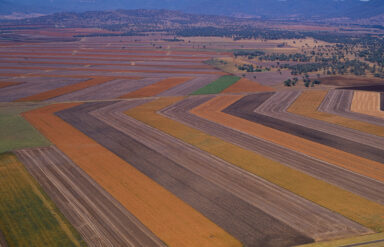The Partners Fund currently has 31% of the portfolio invested across Agriculture. The improving outlook for agricultural prices, favourable weather and production expectations, and non-correlated nature of agricultural markets is providing continued support for asset prices and is driving an increase in demand for investment finance. This further underpins the attractive investment returns and modest risk profile provided by our investments in the sector.
Providing an economic outlook which indicates a further boost to the performance position and risk profile of the Partners Fund, the Australian Bureau of Agricultural and Resource Economics and Science (ABARES) has this week released its December quarter 2020 Agricultural Commodities report. ABARES is now forecasting Australian agricultural production to rise by 7% (or $4.2 billion) in the 2021-21 year to $65 billion, a significant upgrade from the $1.9 billion increase in the “upside scenario” provided in the September quarter forecasts.
The key driver for the upgrade was an upward revision of broadacre crop production due to the continuation of favourable growing conditions over spring. Saleyard prices have also been upgraded due to strong competition for cattle between processors and graziers.
ABARES noted that agricultural markets have been coping well with COVID-19. Containment measures have had a limited impact on overall demand due to the substitution of restaurant demand with home consumption of produce, and rapid adaptation has limited the impact of the pandemic on price volatility. Looking ahead, ABARES expects prices of summer vegetables, stone fruit, pome fruit and table grapes to rise by between 15-25% due to travel restrictions which limit labour available for harvesting.
ABARES’ outlook for the domestic economy more generally has also improved since the September quarter and domestic demand for agricultural products is expected to remain relatively strong.



